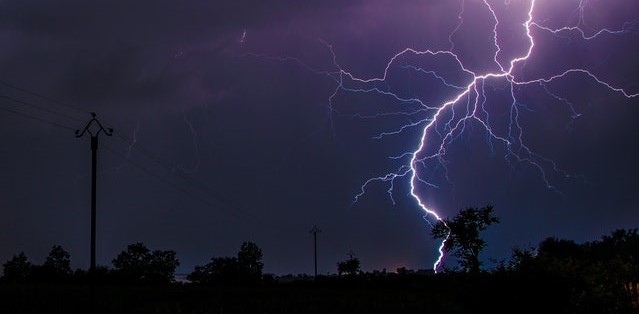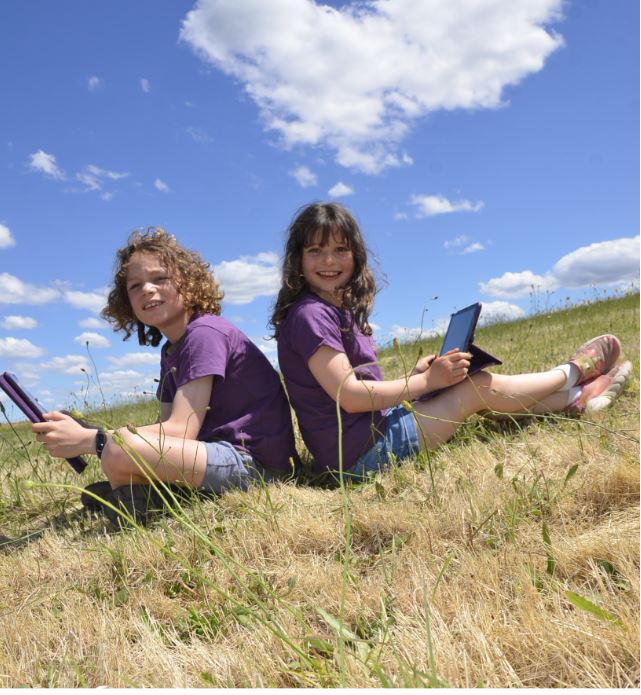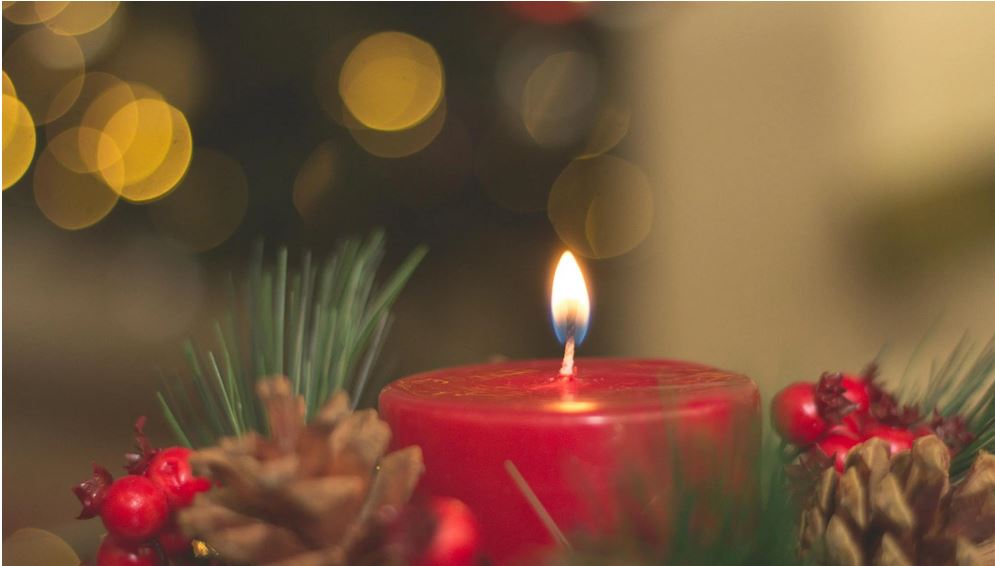November 14th, 2021Stories of the Storm
SANDY Scheltema’s Stories of the Storm series is supported by Hepburn Shire Council, Trentham & Districts Community Bank and the Trentham Lions Club. The series showcases stories of courage, tenacity, bravery and resilience within the community from people who experienced the terrifying storm of June 10, 2021.
This piece features veterinary nurse Eva Evans who was with her 11-year-old daughter Lily on her 60-acre mixed animal farm just outside Trentham when the storm hit. Her 13-year-old son George and husband Scott were at the Royal Children’s Hospital, due to return home on Friday, but couldn’t because of the blocked roads.
“I picked Lily up from the school bus and the weather was getting pretty wild. When we got home, I said to her ‘Let’s secure the animals’. (Eva has ducks, chickens, horses, sheep, goats and a calf named Snickers). We moved the animals into a paddock with the most shelter. The wind was vicious. After we’d secured the animals we hid inside – we had to really push the door closed – the wind was howling from a direction it doesn’t normally come from.
“We made dinner, then lost power just on sunset. I remember thinking ‘Thank God I’ve cooked.’ We had a lovely dinner by candlelight. The wind was coming from a different direction; it was like a jumbo jet flying over the house. So much so that Lily came into bed with me. We had no power, no lights, we lost wi-fi.
“I woke six or seven times during the night and thought ‘jeez, it’s still windy, the power’s still out’. As soon as it was light, I checked to see if the trampoline was still there – I was surprised that it was. There was a message from the school bus driver saying there’d be no school bus today.
“The weather was still wild. I’d noticed there were a lot of trees down in the paddock – all of our shelter trees were uprooted. At 7am the weather seemed to settle. I went up my driveway to see if I could get out and to check the stock.
“It was like God had played pick-up sticks and walked out halfway through the game. The adrenaline kicked in once I saw how many trees had fallen, there were over 30 down over the perimeter fences. I thought ‘We have to find all the animals and move them into a secure location’, because all the boundary fences were gone.
“Trying to catch six flighty horses in a storm was challenging. We managed to get the rugs off two of them, they were flapping and scaring them. Lily was opening gates and I was herding them through. We could hear massive trees crashing down around us and realised it wasn’t safe to assess the boundary fences. We managed to get the stock in an internal paddock that still had fencing.
“We decided to just sit it out. Both driveways were impassable and there was no way I could get out on my own. We ended up with 10 chickens and 15 quail inside because they’d got wet.
“We sat it out until 4pm on the Thursday. About 5pm the storm died down and we walked the 500 metres to our neighbour’s house. We saw utter devastation there. It was horrific, seeing the bush lying on the ground. We’ve all prepared our houses for bushfires, which helped prevent damage from this storm. Our neighbours have earth moving equipment and were already out clearing the roads that were impassable. They put in a solid 10 hours with their equipment and got about a kilometre.
“We found our missing sheep under a branch that had come down in the storm. She was dead. As we went down the drive, we found one of our goats had tried to jump the fence and got caught. We got the car, the wire cutters, and cut her out. She was wet, cold, and miserable. Unfortunately, she never recovered.
“George and Scott couldn’t get home from hospital in Melbourne because roads were still blocked. George was supposed to continue treatment with ‘Hospital in the Home’ via the Hepburn District Nursing Service. Because of the lack of power and road access they made the decision to keep George in the Royal Children’s Hospital until the power and services were restored, which didn’t happen until Tuesday, six days after the storm. I was happy he was safe and not involved with what was happening.
“We put on the generator for our 100-litre chest freezer which had last season’s four lambs and a steer. Once the roads were clear Scott and I made the decision to swap places because I didn’t know where to start with the clean-up of the property. He felt frustrated and useless being stuck in a hospital room in Melbourne knowing how much work was ahead of us. I felt useless not being able to do the heavy work.
“I went to Melbourne to the hospital and came home and was just awestruck by the devastation. We felt overwhelmed by the amount of work to clean up, we were just grateful no-one was hurt. Family and friends from Melbourne were offering to help but because of Covid they couldn’t get here, which made things overwhelming.
“In situations like this it’s important to be in contact with your neighbours, friends and family. Without my neighbours and their amazing earthmoving equipment I’d still be cutting wood out of my driveway. If they hadn’t had a 20-tonne excavator, I wouldn’t have been able to leave my property for days. But it wouldn’t have been the end of the world, we had enough food.
“This storm has made us question our impact on the environment, and question how to mitigate our impact. I feel like extreme weather events are becoming more frequent. It’s important to be prepared to be self-reliant in events like this. Don’t get angry if they can’t turn the power back on in six hours. It doesn’t help being angry.
“When I came home from hospital with George he complained he’d missed everything. I took him for a walk to show him all the damage and George found a mountain brushtail possum stuck in a tree hollow. We pulled him out, he was weak and it was six days after the storm but he had enough fight in him that we made the decision to release him.”
To read Sandy’s final seven features in the series head to www.tlnews.com.au










